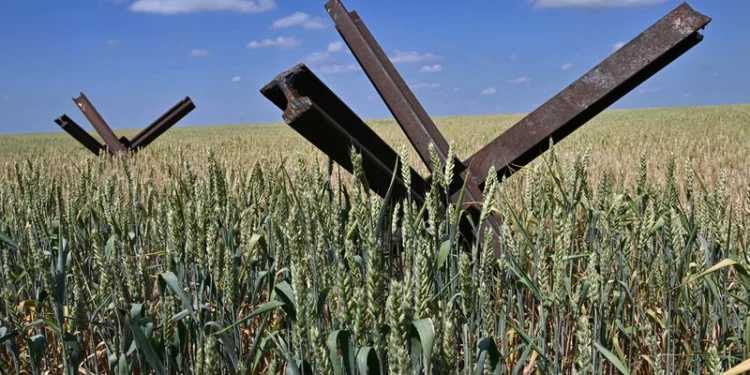Russia has hit back at the US-led West which has imposed tough sanctions on it for invading Ukraine in February 2022. This time, it has not used its war machine much. It has decided to cut off the food supply line, especially wheat, from Ukraine to Europe, Africa and China most of which sails through the Black Sea. The action has already affected grain exports, but what is of greater concern is the prospect of soaring grain prices across the world that is going to hit poorer countries hard in the coming days.
The new problems cropped up after Russia ended last week the Ukraine grain-export deal nearly a year into the agreement. The pact — brokered by the United Nations and Turkey — has ensured the safe passage of almost 33 million tons of crop exports via the Black Sea since it was signed in July 2022. It has helped world food and other commodity prices ease from the record levels reached initially immediately after Russia invaded Ukraine.
However, in recent months it has been affected by red tape and slow vessel inspections by Russia. According to the terms of the agreement, Russia was to oversee the movement of ships to ensure weapons were not carried on board. Moscow had repeatedly threatened to leave the pact, citing obstacles to its own exports. It last agreed to a two-month extension in May, which ended last week. Russia’s decision will affect supplies to countries such as Spain, Egypt and China, apart from having a chain reaction on the food situation in the rest of the world.
Moscow’s explanation for pulling out of the deal is far from convincing. Russia has complained that it hasn’t got its due out of this Black Sea agreement so far. Moscow also argues that strike by shippers in Crimea and uncertainty about insurance coverage have prompted it to take the decision. Right from the start of the agreement, Russia has been blackmailing the West. Soon after it was signed, there was a Russian strike in the port of Odessa. In November 2022, Moscow briefly suspended the deal following the attack on a Russian naval base in Crimea.
Food grains shipped from Ukraine under the deal helped world food prices come down by about 20 per cent, according to the UN’s Food and Agricultural Organisation (FAO). An estimated 43 per cent of the foodstuff exported from Ukraine during the past one year went to developed countries and 57 per cent to developing countries. These statistics indicate what leverage Russia can get by breaking this supply chain. Both the developed and developing countries will reel under soaring foodgrain prices after the supply is stopped.
Russia is also complaining about the impact of Western sanctions on its own agricultural exports, even though Russian agricultural products have been kept out of the purview of the sanctions regime. Moscow is demanding that the Agricultural Bank of the Russian Federation be reconnected to Swift, the service essential for cross-border payments. It demands the lifting of restrictions on marine insurance, which, according to it, affects its agricultural products. But, the whole purpose of the blackmail, it seems, is to put pressure on the West to ease the constraints imposed on Moscow, especially on its oil exports.
It seems like apart from getting the Western sanctions loosened, Russia wants to disrupt world grain prices. After a record 2022 harvest, Russia is awash with stock. As a result, in case of disruption of wheat supply, Russia would not be as affected as the rest of the world. Such a situation could offer Russia the opportunity to try and force the West to at least scale down its sanctions.
It is a cynical game that Russia is playing. But, everything, as the bard said, is fair in love and war.







































